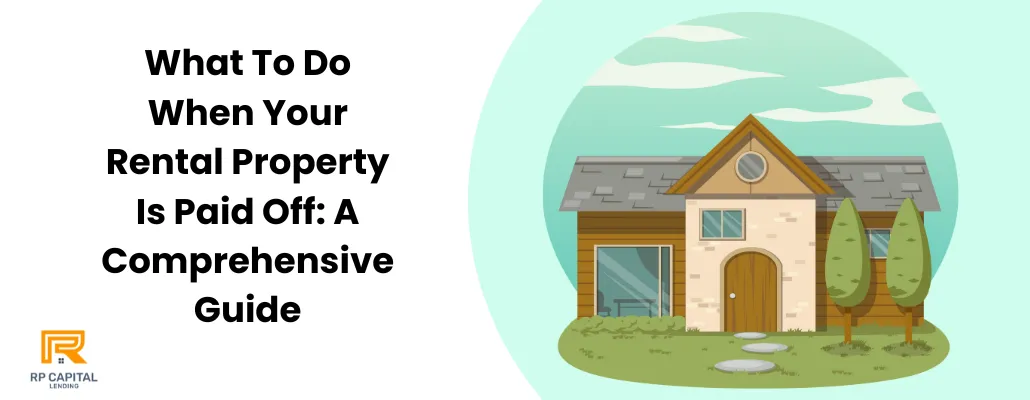Blog

What To Do When Your Rental Property Is Paid Off: A Comprehensive Guide
Congratulations! You've reached a significant milestone—your rental property is paid off. Now what? The journey doesn't end here.
It's time to make strategic decisions to maximize your investment's potential and secure your financial future.
What To Do When Your Rental Property Is Paid Off
Owning a rental property free and clear is a remarkable achievement. Here are some actionable steps to consider:
1. Reevaluate Your Financial Goals
Now that you have more financial flexibility, take a moment to reassess your long-term financial goals. Consider the following questions:
Do you want to expand your real estate portfolio?
Are you aiming to diversify your investments?
Do you need to increase your retirement savings?
2. Reinvest in Real Estate
One effective strategy is to use the income from your paid-off property to invest in additional real estate. This can help you:
Grow your portfolio
Increase rental income
Benefit from property appreciation
3. Pay Off Other Debts
If you have other outstanding debts, using the income from your paid-off property to eliminate them can be a smart move. This will improve your overall financial health and potentially increase your credit score.
4. Upgrade or Renovate Your Property
Enhancing your rental property's appeal can attract higher-quality tenants and increase rental income. Consider:
Modernizing the kitchen and bathrooms
Adding energy-efficient appliances
Improving landscaping
5. Increase Savings and Investments
With the additional cash flow, you can boost your savings or invest in other opportunities such as:
Stock market investments
Mutual funds
Retirement accounts
6. Tax Planning
A paid-off rental property changes your tax situation. Consult with a tax advisor to explore benefits like:
Depreciation deductions
Interest expense deductions
Tax-deferred exchanges (1031 exchange)
FAQs
1. Should I sell my paid-off rental property?
It depends on your financial goals. Selling could provide a lump sum for other investments, but retaining it offers ongoing rental income.
2. How can I use my rental income effectively?
You can reinvest in real estate, pay off other debts, or increase your savings and investment portfolio.
3. What are the tax implications of a paid-off rental property?
Consult a tax advisor to understand deductions and benefits, such as depreciation and interest expense deductions, that can still apply.
4. How can I increase the value of my rental property?
Upgrading key areas like kitchens and bathrooms, improving energy efficiency, and enhancing curb appeal can increase property value.
5. Is it a good idea to refinance my paid-off rental property?
Refinancing can provide capital for further investments or renovations. However, consider interest rates and fees before deciding.
Conclusion
Paying off your rental property is a significant milestone, but it's just the beginning. By strategically managing your new-found financial freedom, you can continue to build wealth, secure your financial future, and achieve your long-term goals. Whether it's reinvesting in real estate, paying off other debts, or increasing your savings, the choices you make now can have a lasting impact on your financial well-being.
Remember, every decision should align with your overall financial strategy and personal goals. Take the time to evaluate your options and consult with financial and tax advisors to make informed choices. Your journey to financial success continues, and with careful planning, the best is yet to come.
Disclaimer: Loans only apply to non-owner occupied properties. Rates, terms and conditions offered only to qualified borrowers, may vary upon loan product, deal structure, other applicable considerations, and are subject to change at any time without notice.
Copyright © 2025. All Rights Reserved.


